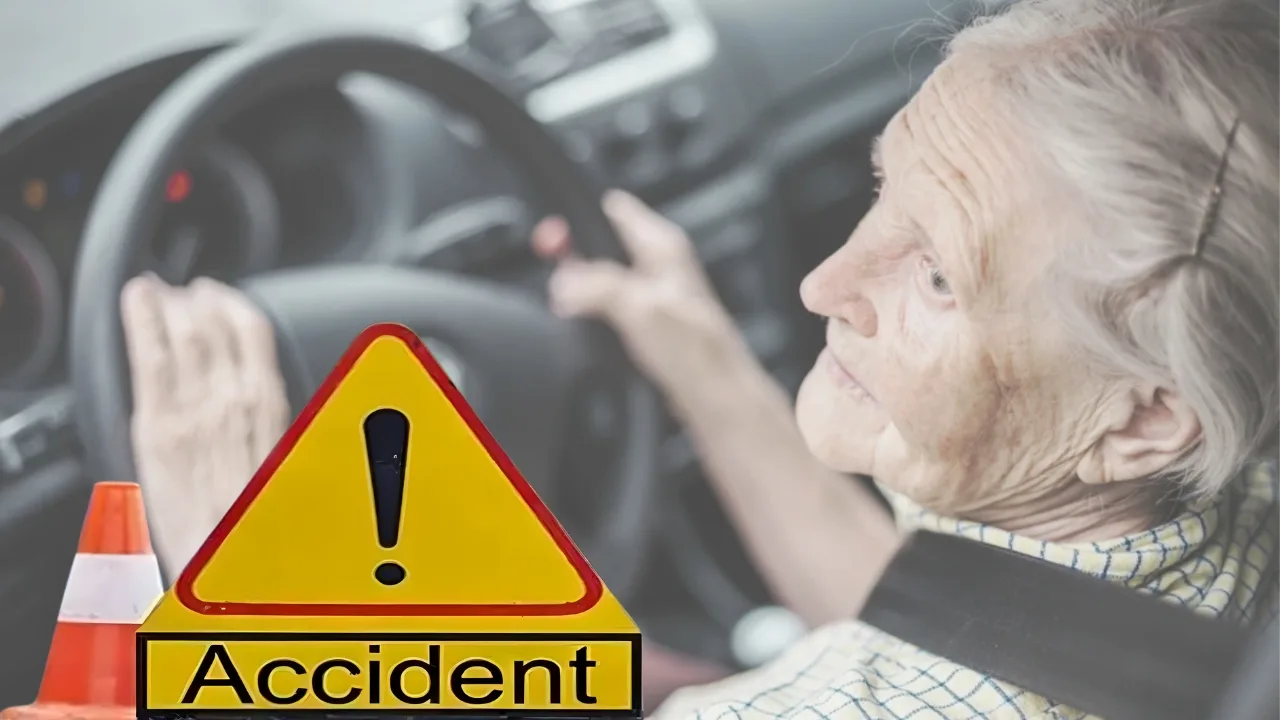Starting January 1, 2026, New York could introduce sweeping changes for senior drivers with the proposed Bill Geller Act. This law aims to improve road safety by studying and addressing the risks posed by older drivers, who make up a growing segment of the population. The act follows a tragic accident in which Bill Geller, a 47-year-old man, was killed by an 88-year-old driver, sparking calls for reform to prevent similar incidents.
“This law is about making sure that everyone on the road, including seniors, stays safe,” said Dr. Emily Harris, a road safety expert. “While it’s difficult to limit driving privileges for older drivers, this is about addressing a real issue that affects public safety, especially with the increasing number of seniors on the road.”
The Bill Geller Act will create a Senior Driver Safety Commission responsible for reviewing and recommending ways to enhance safety for older drivers. The commission will focus on several key areas:
- Examining how current driving laws affect senior safety
- Investigating the causes of accidents involving senior drivers
- Reviewing the impact of medications on older drivers
- Suggesting ways to improve safety for seniors on the road
“The growing number of seniors on the road requires more nuanced approaches to driver safety,” said Sarah Coleman, a traffic law attorney. “This commission will gather vital data that can lead to more informed decisions on how to handle senior drivers, without rushing to revoke licenses based purely on age.”
What Does the Bill Geller Act Propose?
The Bill Geller Act, proposed as New York Senate Bill S6175, seeks to address the rising concerns over senior driver safety. The primary objective is not to immediately revoke senior driving privileges but to implement a thorough study to better understand the challenges faced by older drivers.
“The Bill Geller Act gives New York a much-needed opportunity to take a closer look at the risks posed by older drivers,” said David Johnson, a public policy advocate. “It allows the state to create policies based on evidence rather than assumptions, which will ultimately make our roads safer for everyone.”
The commission, which will be established under the new law, will focus on several key areas:
- Mandatory vision tests for seniors during license renewals
- Cognitive testing to assess memory, reaction times, and decision-making
- Shorter license renewal periods for seniors
- Restricted licenses for high-risk individuals
While these changes won’t automatically take away licenses, the commission’s findings may lead to new regulations aimed at reducing accidents involving senior drivers.
Why the Bill Geller Act Matters?
New York is home to nearly 4 million seniors, many of whom rely on their driver’s licenses for transportation and identification. The Bill Geller Act could bring significant changes to this group, particularly if the commission recommends stricter tests or shorter renewal cycles.
“This is a delicate issue,” said Linda Mitchell, a family advocate. “Seniors rely on their independence, and taking away their ability to drive can have a profound effect on their lives. But at the same time, we have to balance that with safety for everyone on the road, including the seniors themselves.”
Supporters of the bill argue that New York is lagging behind other states when it comes to senior driver testing. For instance:
- Florida requires a vision test for drivers aged 80+
- States like North Carolina, Illinois, Arizona, Texas, and others have special rules for older drivers
The law is named after Bill Geller, a vibrant community member whose tragic death by an elderly driver motivated his family and lawmakers, including Assemblywoman Shelly Mayer and State Senator Kevin S. Parker, to push for a solution.
“Bill was known for his energy and love for life,” said Assemblywoman Shelly Mayer. “His family’s loss is a reminder of why we need to address the issue of senior drivers with the utmost care and urgency.”
What Could Change for Seniors?
While the Bill Geller Act does not immediately impose any new restrictions, the findings from the Senior Driver Safety Commission could lead to significant changes for senior drivers. Potential recommendations could include:
- Mandatory vision tests at each license renewal for seniors
- Cognitive testing to assess reaction times or memory
- Shorter license renewal periods for older drivers
- Restricted licenses for seniors deemed at high risk due to health or cognitive decline
“Although these measures might be hard for some seniors, they are crucial for improving safety,” said Dr. Emily Harris, a road safety expert. “It’s important that these tests are used as a tool to help senior drivers remain on the road longer while ensuring they can do so safely.”
These changes could have a profound impact on seniors’ freedom and independence, particularly for those who do not have easy access to public transportation or family support.
How Seniors Can Prepare?
Although the law has not yet passed, seniors can take proactive steps to ensure their safety on the road and prepare for potential changes. Here’s how seniors can get ready:
- Schedule regular eye exams to monitor vision changes
- Engage in mental exercises to improve memory and cognitive function
- Maintain a clean driving record to avoid drawing attention to unsafe driving habits
- Consider alternative transportation options, such as ride-sharing apps, senior transportation services, or family carpooling, in case stricter driving tests or restrictions are imposed
“Seniors should begin preparing now, not only for their safety but also for the possible changes that will affect their driving privileges,” said Sarah Coleman, a traffic law attorney. “It’s important to stay proactive and keep up with regular health check-ups to stay ahead of any changes in driving regulations.”
The Bill Geller Act’s Journey in the Legislature
The Bill Geller Act is still in the early stages of the legislative process. Currently in the Committee phase in the New York Senate, the next step will be for the bill to reach the On Floor Calendar for debate and voting. If passed, it will be sent to Governor Kathy Hochul for final approval.
“This bill is an essential step in protecting both seniors and the public from preventable accidents,” said David Johnson, a public policy advocate. “It’s not just about testing—it’s about improving awareness and creating policies that focus on real safety risks.”
Even though no immediate changes will occur, the act could lay the groundwork for significant shifts in how senior driving is regulated in New York. The law may encourage other states to follow suit in addressing the safety of older drivers.
FAQs
What is the Bill Geller Act?
The Bill Geller Act is a proposed law that aims to improve senior driver safety by creating a commission to study accidents involving older drivers and recommend measures to enhance safety.
When could the Bill Geller Act take effect?
The law could take effect as soon as January 1, 2026, depending on its progress through the legislative process.
Will seniors lose their licenses because of this law?
Not immediately. The act sets up a study, which may lead to recommendations for stricter tests or renewal rules for senior drivers.
Why was the Bill Geller Act introduced?
It was introduced after the tragic death of Bill Geller, who was killed by an 88-year-old driver. His family and lawmakers are pushing for changes to improve road safety for seniors.
How can senior drivers prepare?
Seniors can stay proactive by keeping their vision and health in check, engaging in cognitive exercises, maintaining a good driving record, and exploring alternative transportation options.

